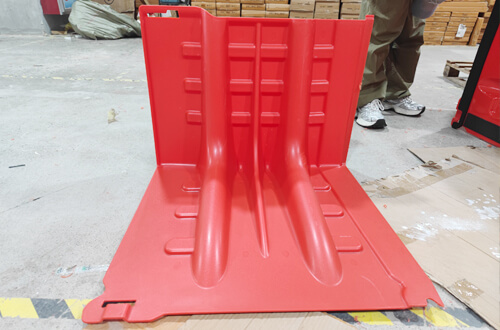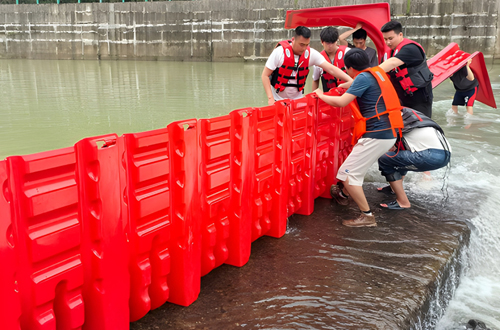
Global warming has resulted in an increase in extreme weather events, with heavy rainfall-induced floods posing significant threats to human life and property. The flood control sub-embankment, also referred to as a temporary embankment, is constructed atop the main embankment adjacent to the water surface to prevent overflow during flooding. This type of on-site assembled sub-embankment is typically designated for national, river basin, or provincial and municipal emergency response equipment reserves; it may also be directly allocated to mobile rescue teams within provinces and municipalities.
These structures are generally erected along both banks of rivers to effectively block potential flood overflows. In anticipation of flooding events, communities will construct these sub-dikes to mitigate flood impacts and safeguard agricultural land and urban areas.
The benefits of the flood control sub-embankment are evident. Firstly, it significantly reduces damage caused by floods; when inundation occurs, these barriers can be rapidly deployed to create a protective barrier against encroaching waters threatening cities and farmland. Secondly, they enhance public safety; during flooding incidents, individuals can utilize these dikes as refuge from rising waters thereby minimizing casualties. Furthermore, the flood control sub-embankments help protect property by containing floodwaters outside riverbanks which prevents damage to surrounding infrastructure such as buildings and crops while mitigating economic losses.
Due to their mobility, rapid installation capabilities across various soil types, and cost-effectiveness, flood control sub-embankments have become essential tools in emergency flood management.

気候変動や異常気象がますます深刻化する中で、都市の能力は、そのような気候変動や異常気象に対処するために必要不可欠なものとなっている。

素材と構造 1.優れた素材:一般的にABSプラスチックから構成され、この材料は、...

アルミ製洪水障壁 通常、押出成形により6063アルミニウム合金(側柱を含む)で作られる。 D...

アルミニウムとABSの洪水バリアには、素材や性能の面で大きな違いがある。

なぜ質の交通ガードレールのハイウェーのガードレールはハイウェーの安全のために重大であるか。 1.安全性の向上